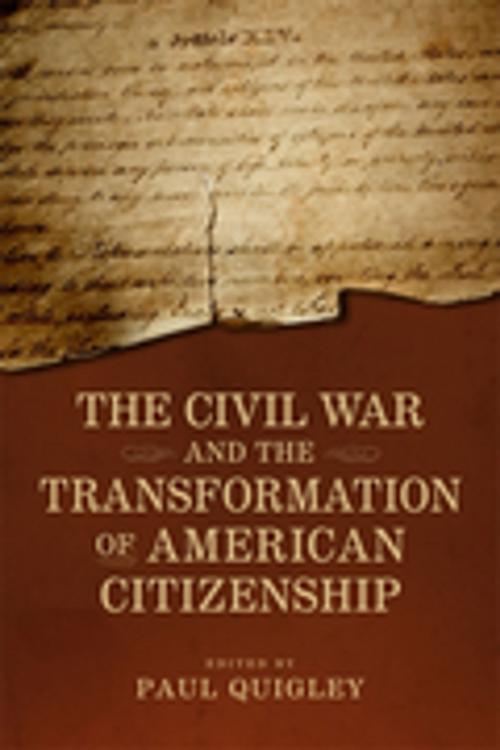The Civil War and the Transformation of American Citizenship
Nonfiction, History, Americas, United States, Civil War Period (1850-1877)| Author: | ISBN: | 9780807168653 | |
| Publisher: | LSU Press | Publication: | June 4, 2018 |
| Imprint: | LSU Press | Language: | English |
| Author: | |
| ISBN: | 9780807168653 |
| Publisher: | LSU Press |
| Publication: | June 4, 2018 |
| Imprint: | LSU Press |
| Language: | English |
The meanings and practices of American citizenship were as contested during the Civil War era as they are today. By examining a variety of perspectives—from prominent lawmakers in Washington, D.C., to enslaved women, from black firemen in southern cities to Confederate émigrés in Latin America—The Civil War and the Transformation of American Citizenship offers a wide-ranging exploration of citizenship’s metamorphoses amid the extended crises of war and emancipation.
Americans in the antebellum era considered citizenship, at its most basic level, as a legal status acquired through birth or naturalization, and one that offered certain rights in exchange for specific obligations. Yet throughout the Civil War period, the boundaries and consequences of what it meant to be a citizen remained in flux. At the beginning of the war, Confederates relinquished their status as U.S. citizens, only to be mostly reabsorbed as full American citizens in its aftermath. The Reconstruction years also saw African American men acquire—at least in theory—the core rights of citizenship. As these changes swept across the nation, Americans debated the parameters of citizenship, the possibility of adopting or rejecting citizenship at will, and the relative importance of political privileges, economic opportunity, and cultural belonging. Ongoing inequities between races and genders, over the course of the Civil War and in the years that followed, further shaped these contentious debates.
The Civil War and the Transformation of American Citizenship reveals how war, Emancipation, and Reconstruction forced the country to rethink the concept of citizenship not only in legal and constitutional terms but also within the context of the lives of everyday Americans, from imprisoned Confederates to former slaves.
The meanings and practices of American citizenship were as contested during the Civil War era as they are today. By examining a variety of perspectives—from prominent lawmakers in Washington, D.C., to enslaved women, from black firemen in southern cities to Confederate émigrés in Latin America—The Civil War and the Transformation of American Citizenship offers a wide-ranging exploration of citizenship’s metamorphoses amid the extended crises of war and emancipation.
Americans in the antebellum era considered citizenship, at its most basic level, as a legal status acquired through birth or naturalization, and one that offered certain rights in exchange for specific obligations. Yet throughout the Civil War period, the boundaries and consequences of what it meant to be a citizen remained in flux. At the beginning of the war, Confederates relinquished their status as U.S. citizens, only to be mostly reabsorbed as full American citizens in its aftermath. The Reconstruction years also saw African American men acquire—at least in theory—the core rights of citizenship. As these changes swept across the nation, Americans debated the parameters of citizenship, the possibility of adopting or rejecting citizenship at will, and the relative importance of political privileges, economic opportunity, and cultural belonging. Ongoing inequities between races and genders, over the course of the Civil War and in the years that followed, further shaped these contentious debates.
The Civil War and the Transformation of American Citizenship reveals how war, Emancipation, and Reconstruction forced the country to rethink the concept of citizenship not only in legal and constitutional terms but also within the context of the lives of everyday Americans, from imprisoned Confederates to former slaves.















